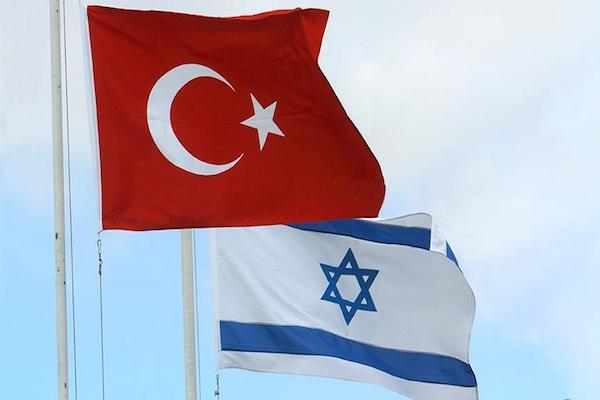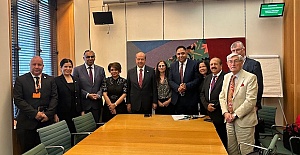The mutual appointment of ambassadors represents the culmination of the process of renewed ties.67 years of Turkish-Israeli diplomatic relations Bilateral ties came under particular strain in 2010 when Israeli commandos stormed the Mavi Marmara, a Turkish aid flotilla bound for the blockaded Gaza Strip, in international waters.
The attack on the six civilian vessels, which had been trying to break Israel's blockade of Gaza, resulted in the death of nine Turkish citizens and left another 30 injured, one of whom succumbed to his injuries nearly four years later.
In the aftermath of the attack, Turkey demanded an official apology from Israel, compensation for the families of those killed, and the lifting of Israel’s Gaza blockade, which since 2007 has remained under a crippling Israeli embargo.
In 2013, Israeli Prime Minister Benjamin Netanyahu voiced his regret to Turkey’s then-Prime Minister (now president) Recep Tayyip Erdogan over the attack.
Months of talks between the two countries finally bore fruit in August, with Turkey announcing a deal to start normalizing relations with Israel after the six-year hiatus.
Under the agreement, in August Israel paid $20 million in compensation to the families of the Mavi Marmara victims, and the two countries this week appointed ambassadors.
The following is a brief timeline of significant developments in Turkish-Israeli relations since 1948:
May 14, 1948: The state of Israel is established.
March 28, 1949: Turkey formally recognizes Israel.
1950: Turkey opens its first diplomatic mission in Tel Aviv.
1956: Israel invades Egypt’s Sinai Peninsula and occupies the Suez Canal, after which Turkey downgrades its diplomatic representation to the level of charges d’affaires.
1963: Turkey’s diplomatic representation in Israel is upgraded to the level of consulate.
1967: Israel occupies large swathes of Arab territory, including Jerusalem. Turkey protests.
1969: A group of Jewish fanatics sets fire to Jerusalem’s iconic Al-Aqsa Mosque.
1975: Turkey officially recognizes the Palestine Liberation Organization (PLO). The UN General Assembly adopts a resolution defining Zionism as a form of racism.
1980: Turkish diplomatic representation in Israel upgraded to the ambassadorial level.
1980: Israel annexes East Jerusalem and declares Jerusalem its capital. Turkey again reduces its level of diplomatic representation.
1986: Turkish diplomatic representation is upgraded to level of charges d’affaires.
1987: The first Intifada, or Palestinian uprising against Israeli occupation, begins. Turkey voices its support for the Palestinians.
1988: Turkey formally recognizes the state of Palestine, straining Ankara’s relations with Israel.
1991: The Middle East peace process begins. Turkish-Israeli relations improve.
1994-1998: Ankara and Tel Aviv sign a number of agreements in the fields of security, defense, and the economy.
2000: The Second Intifada begins after Israeli Prime Minister Ariel Sharon visits Jerusalem’s Al-Aqsa Mosque compound. Turkey-Israeli ties again come under strain.
2006: Israel attacks Lebanon, drawing a major protest from Turkey.
2008-2009: Israel attacks the blockaded Gaza Strip, killing more than 1,400 Palestinians. Turkey condemns the offensive.
2009: At the World Economic Forum in Davos, Switzerland, then-Prime Minister (current president) Recep Tayyip Erdogan publicly scolds then-Israeli President Shimon Peres after the latter attempts to justify the attack on Gaza.
2010: Turkey suspends diplomatic relations with Israel in the wake of the deadly Mavi Marmara incident.
2013: Israeli PM Benjamin Netanyahu voices regret for incident.
Aug. 20, 2016: Israel accepts Turkish preconditions for normalizing relations, including demands to compensate the families of the Mavi Marmara victims.
Nov. 15, 2016: Israel appoints its first ambassador to Turkey in six years. Eitan Na’eh, deputy ambassador to Britain since 2013, is to be the new envoy to Ankara.
Nov. 16, 2016: President Recep Tayyip Erdogan announces the appointment of former foreign policy adviser Kerem Okem as Turkey’s new ambassador to Israel.


 Enfield Labour welcomes new court order to stop antisocial behaviour in Edmonton Green
Enfield Labour welcomes new court order to stop antisocial behaviour in Edmonton Green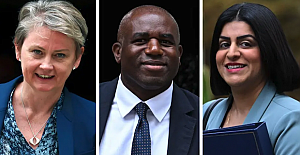 David Lammy arrives in Downing Street after becoming deputy prime minister
David Lammy arrives in Downing Street after becoming deputy prime minister CTCA UK Condemns the Political Forcing Out of Afzal Khan MP for Engaging with Turkish Cypriots
CTCA UK Condemns the Political Forcing Out of Afzal Khan MP for Engaging with Turkish Cypriots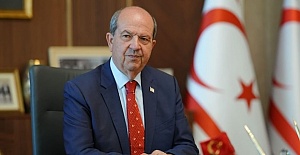 Tatar: “Reaction to MP’s TRNC visit is yet another stark example of the Greek Cypriot leadership’s primitive and domineering mentality”
Tatar: “Reaction to MP’s TRNC visit is yet another stark example of the Greek Cypriot leadership’s primitive and domineering mentality” Important Travel Updates: London Underground and DLR Strike Action
Important Travel Updates: London Underground and DLR Strike Action Team Enfield ranks fifteenth the in London Youth Games
Team Enfield ranks fifteenth the in London Youth Games Parking enforcement boosted with more officers on patrol in Enfield
Parking enforcement boosted with more officers on patrol in Enfield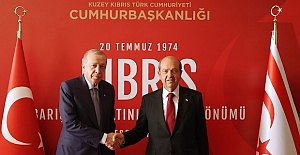 Ersin Tatar meets with President Erdoğan
Ersin Tatar meets with President Erdoğan Zlatan Ibrahimović receives UEFA President’s Award
Zlatan Ibrahimović receives UEFA President’s Award UEFA Europa League and UEFA Conference League draws to be combined into one single show
UEFA Europa League and UEFA Conference League draws to be combined into one single show EuroLeague schedule for 2025-26 season announced
EuroLeague schedule for 2025-26 season announced Zeynep Sonmez becomes first Turkish tennis player to reach third round at Wimbledon
Zeynep Sonmez becomes first Turkish tennis player to reach third round at Wimbledon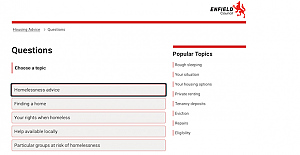 Important milestone achieved with no hotel placements for temporary accommodation
Important milestone achieved with no hotel placements for temporary accommodation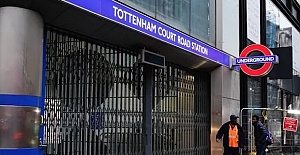 London tube strike shuts down services as TfL website crashes
London tube strike shuts down services as TfL website crashes HMRC TARGETS ERRORS IN MARGINAL RELIEF CLAIMS
HMRC TARGETS ERRORS IN MARGINAL RELIEF CLAIMS Enfield Labour welcomes the completion of A10 average speed cameras extension.
Enfield Labour welcomes the completion of A10 average speed cameras extension.





